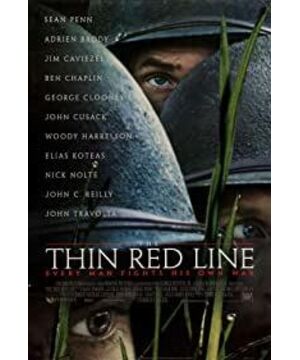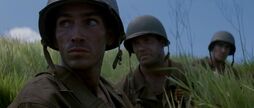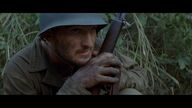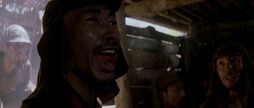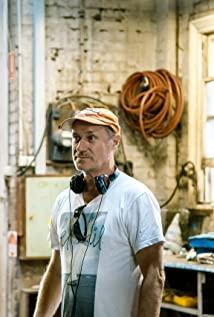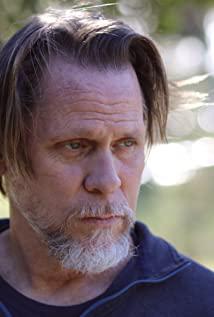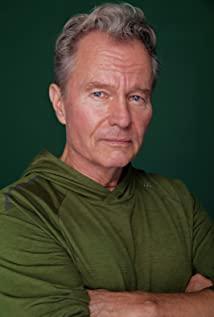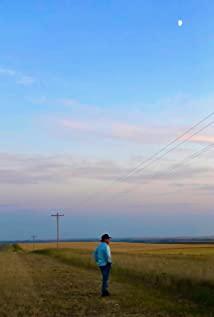Ouyang Feng
Darkness from light, strife from love, are they the workings of one mind? The features of the same face? Oh, my soul, let me be in you now, look out through my eyes, look out at the things you made. All things shining.
Darkness and light, hatred and love, all come from the same heart and have the same face? My soul, let me believe in God, observe the world through my eyes, look at all things you have created, and exude the brilliance of life.
The Guadalcanal Islands are picturesque, like falling beads on a jade plate, calm and quiet, incompetent with the world, overflowing with the most primitive temperament of mankind. God silently watches the birth and death of this land, sometimes frowning and nodding, sometimes smiling without speaking, without losing the solemnity and majesty; the residents always keep a childlike innocence, focusing on the things in their hands and the flow of life, which is a good one A world away. In the silent mountains, no animals, plants, or humans surpassed the thunder pond, and everything lived in harmony with the laws of nature like obeying the will of heaven.
Soldier Witt once said that the children here would not fight. The women on the island laughed and replied: "Sometimes, they always fight when they are playing." The children on the island fight only because of play, but the children outside the island fight for toys, fight for other quarrels, or fight. . When I grew up, the things I competed for became power and money, and greed made people constantly grabbing them, and I still enjoyed it. So the war was on the verge of breaking out, and it was out of control.
People who start the war often have good excuses. But very often, it is even just because of the selfishness or ambition of a few people. For example, Chinese history is also a history of war. For five thousand years, wars of all sizes caused by hegemony, revenge, and mediocrity have erupted almost every year. Are human beings themselves warlike? no. At home, his sweet wife waited, Bell endured the loneliness in the army every day just to meet again; after six years in the army, he escaped six years of military service. Witt always has a good faith in the future, and often recalls the relationship between humans and humans on the island. A free and harmonious life between humans and nature.
Who doesn't want peaceful days? Who doesn't want to make love with his lover? Who doesn't want to share family relationship with family? Who doesn't want to be happy with brothers? But for soldiers, the more peaceful, the more mediocre. The times make heroes, and there is a chance to climb in troubled times. The commander waited for this battle for fifteen years. In fifteen years, how many young and frivolous can be turned into reserved and introverted, and how much ambition can be turned into calmness. But fame, honor, power, and status are enough to wipe out the power of time and disappear. For fifteen years, maybe every day, he would figure out when there will be a war to get him promoted, maybe it will be tomorrow, maybe next month, maybe another fifteen years. The eagerness for quick success made him never allow failure, and he could not stand failure. There is only victory, continuous victory, regardless of whether the soldier is cannon fodder or a living person. From beginning to end, the commander was in a frenetic state of winning. His greed and desperation are like dried fish under the sun, all at a glance.
When the commander was trapped in the excitement of the war, his command to "pursue with victory" also completely broke the bottom line of the soldiers at the same time. First tasted the trepidation of the jungle march, and then discovered that two American soldiers had their limbs brutally cut off, and all the soldiers were already frightened. In the battle to capture the top of the mountain, they watched the brother who was still fighting with them in the last second, and died in their arms in the next second, and disappeared all of a sudden. Fear, at this time, has been magnified to the extreme. The soldiers have tasted murder, both regretful and excited. But they were already a group of wild horses, unable to hold back, and couldn't turn their heads back. In the battle to break through the Japanese line of defense, they were as sensitive as soldiers. The ugliness and bloody violence of war can make people lose their conscience. Killing frantically, the air is full of cruelty.
The gunshots that pierced the air and the panic that shook the mountains and forests were really out of place, because the Bund's nerves were about to be broken all the time and they were always alert to the enemy's sneak attacks. War is like holding a fuse in one hand, and a grenade may explode at any time. War is the most extreme way of fighting, and it may die at any time. In the face of war, an individual's life is like walking a tightrope, and may fall into the abyss at any time. Life is too thin and too weak to be broken. When the camera scans through countless faces, although there are struggles, vigilance, fear, pain, and madness, it is actually the same face—the face of a desperado. Witt's last expression had no fear, but it was full of suspicion and despair, as well as the clarity of the end. Why is there a war? Why is faith so easily destroyed? The war burned irreparable wounds on people's minds and bodies, and eventually scabs and turned into erected walls. Welsh is a veteran who has long been exhausted from the predicament of war, and has developed a cold appearance. I don't know if all veterans are like him, accustomed to the cruelty of war. Once upon a time, he might have been like Witt, with high spirits and infinite longings, but in the end he didn't have time to realize it. He turned into a pool of blood in the rigidity of the barracks and the sorrow of war. Welsh was tired and exhausted. He put on a hard shell like a hedgehog and refused to be injured. But under this pair of skins was curled up with a soft red lining, he was calm and fearful, timid and brave at the same time. When he captured the mountaintops of the Japanese army, he fought hard and shuttled to rescue his companions in the rain of bullets. He also erected a tomb for him after Witt died, accompanied him by himself, regretting him. He was so scared. In the end, Bell, who was waiting with all his heart, received a message from his wife to remarry-she was too lonely because of the war. It is a tragedy that the beautiful hope of mankind has been ruthlessly stifled.
What is the end of the war? Win or lose one by one? On the surface, the Japanese army lost and the US army won. But in fact, there is no such thing as a winner in a war. All the participants lost. War itself is a mistake. No one can stand up and say that he has compassion and represents justice. Judging the wrong thing from the wrong direction is meaningless in the first place. But humans seem to have endless battles forever.
The silence of the jungle and the uneasiness of gunfire filled every pore with human fragility and fear. But if you put aside your weapons and take off your precautions, you can see the sunlight piercing your eyes through the luxuriant branches and leaves, while falling on the ground voluntarily. Chirping, the animals chasing each other in the forest, and the swans resting comfortably on the water. They are naturally harmonious in the cycle of life endlessly. Trees have never cared whether they are withering and dying, nor have they thought about when they breathe out their last breath; birds, beasts, and swans have never thought about the state and feeling of death. They focus on the fulfillment and happiness of this moment, no matter what the next moment will be, they have no time to take care of other illusions. Only the soldiers were afraid in the fog, worried that death would come at any time. Some soldiers said there was silent pain in their eyes when they saw the bird die. In the madness and numbness of war, soldiers and death are inextricably entangled, and there are inexplicable alienation. The bird's eyes actually projected the soldier's heart, and the bird's pain was actually the soldier's own pain-helplessness. Human beings are too obsessed with what they have and pursue, whether it is feelings, wealth, fame, etc. But these, once a person dies, there is nothing left.
All of this, God is silent, but it is all in his eyes. Animals climbed on the tree, jumped up and down, looking curiously, as if watching a farce; the plants remained motionless and said nothing, but quietly observed and laughed, watching how humans fell from rationality to madness. People are famous and lost, power and status drive the commander into madness; when survival is shamelessly magnified to disregard the love of the same kind, survival drives the soldiers into madness. In the end, Welsh chose to believe in God. But God is just the product of the human heart, and the human heart can be cruel or benevolent.
What is the thin red thread that makes you crazy?
09.5.7
View more about The Thin Red Line reviews


